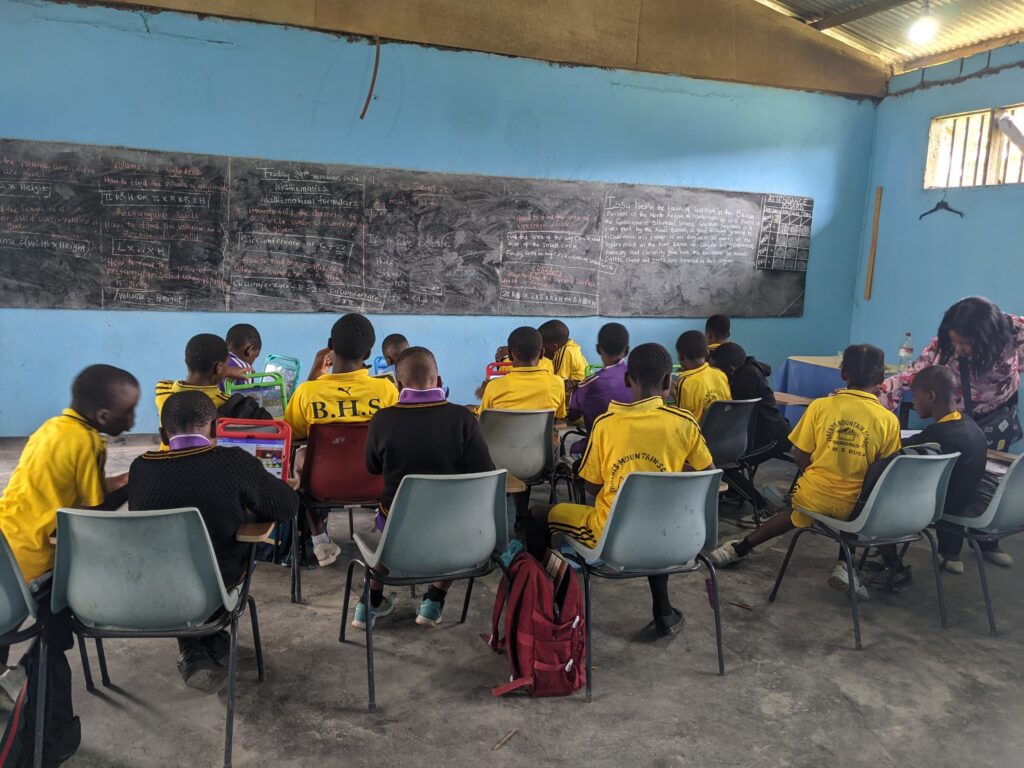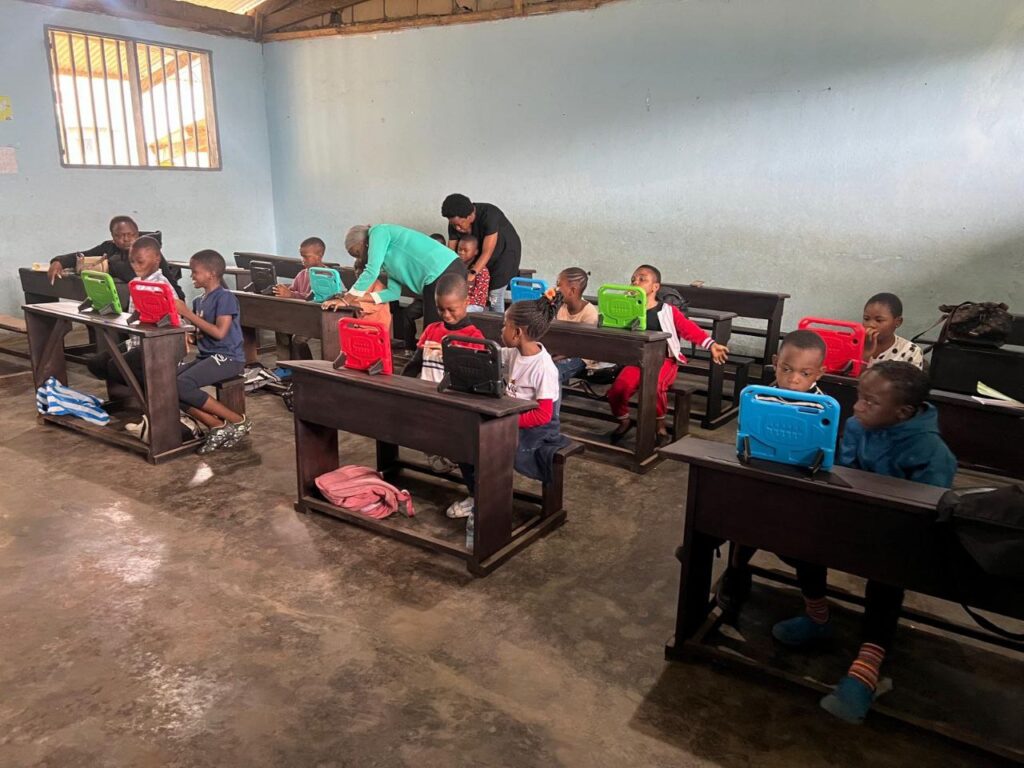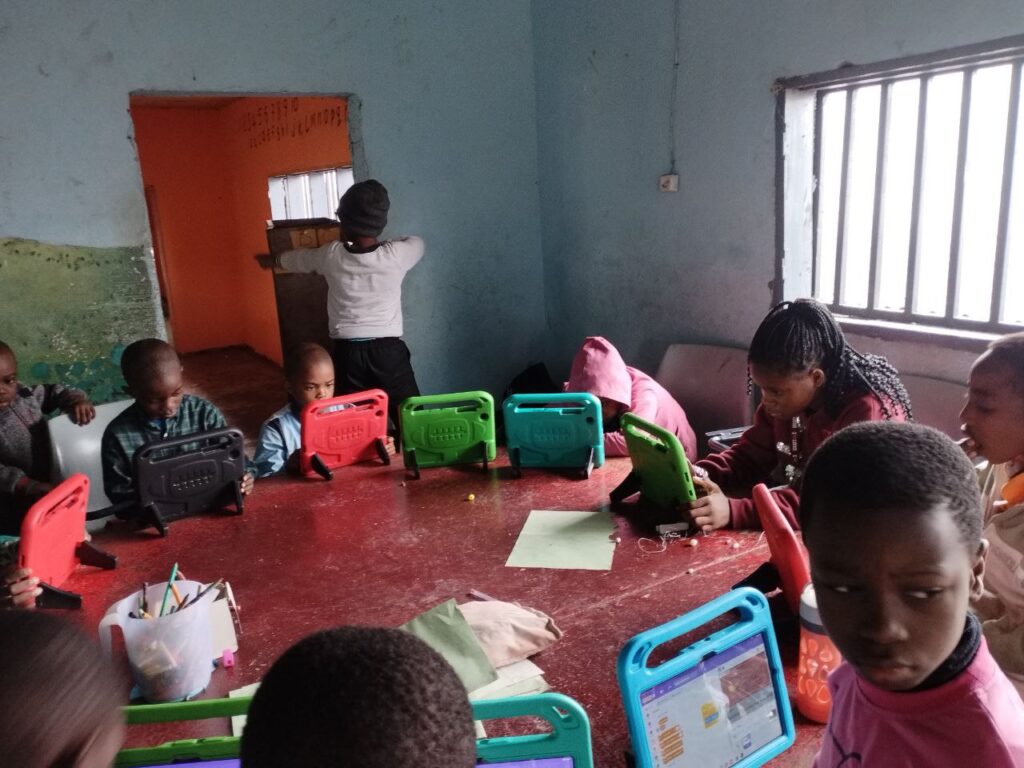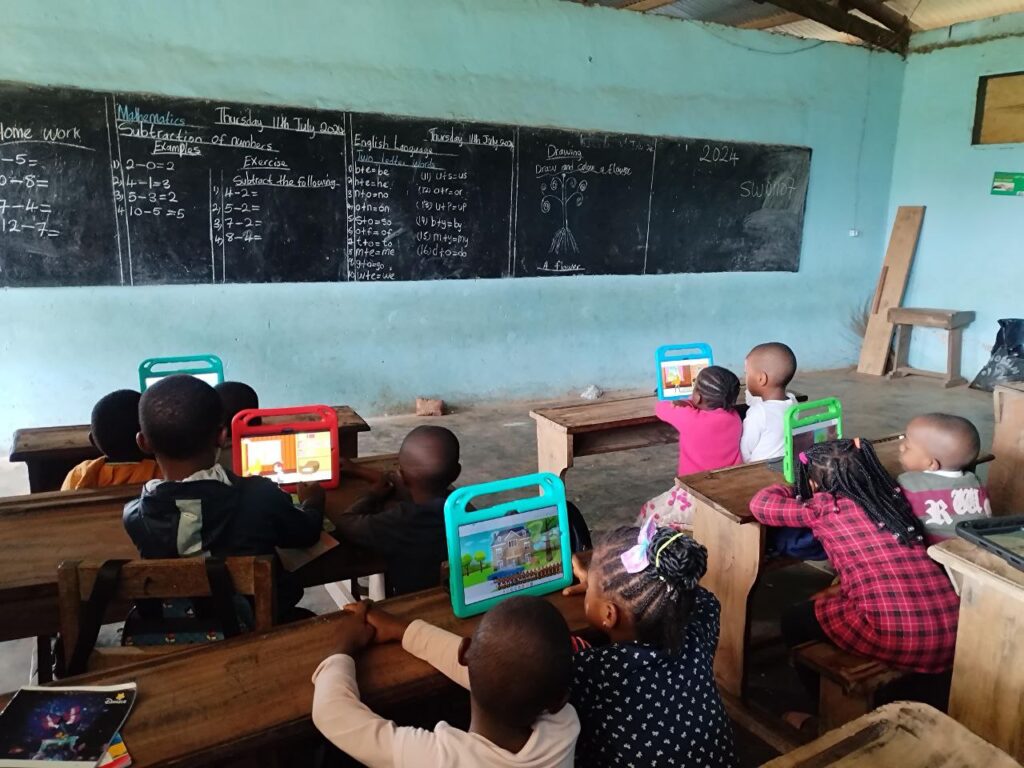Bridging the Digital Divide: How PMS Buea & DELC Foundation Are Revolutionizing Learning With (1 & 0’s)

From a Summer Spark to a Year-Round Educational Revolution
In 2022, a modest holiday program at Parents Mountain School in Buea transformed into a vital part of the learning experience. In the 21st century, education for young learners across Buea and Cameroon—who will be entering the workforce by 2035—must include digital skills and technology.
To support this goal, the Board of Parents Mountain School, a primary institution dedicated to values-based education, has partnered with the DELC Foundation, an organization focused on improving digital skills and literacy throughout Cameroon. This collaboration between Parents Mountain School (PMS) Buea and the DELC Foundation is pioneering a new educational approach that integrates digital tools.
According to the World Bank, about 78% of primary school children in Cameroon struggle with reading and writing. DELC is addressing this challenge by organizing programs that promote reading, numeracy, and digital learning. Originally launched as a short-term holiday program in Limbe and Buea, the initiative received support from students, teachers, and parents, paving the way for something meaningful. The shared vision is clear: to incorporate foundational and technological skills into early education while addressing local needs and classroom realities.
A Curriculum With Purpose: Tech, French, & Problem Solving

What makes this partnership special isn’t just that kids learn to code it’s how they learn:
Learning encompasses the vital skills of literacy, numeracy, critical thinking, and problem-solving essential for future success. Through Scratch, a visual and friendly programing language, students became active creators. They develop logical thinking, problem-solving skills, and teamwork—traits that extend beyond the computer screen, enhancing their performance in subjects like Mathematics and English.
The inclusion of coding and puzzles sharpens cognitive abilities, cultivating perseverance, teamwork, and analytical reasoning in an engaging way. What sets this program apart is the innovative blending of digital tools with French language lessons, demonstrating a profound understanding of how interconnected learning can reinforce one another. This holistic approach makes learning more relevant and effective.
The benefits are tangible as students display newfound engagement and enthusiasm for learning. The hands-on, interactive nature of the program appeals to diverse learning styles, helping students grasp complex concepts and fostering a strong sense of achievement. Moreover, early exposure to digital tools equips young learners for a future increasingly defined by technology.
Behind the Scenes: Scale, Inclusion & Resilience

This isn’t just anecdotal it’s real change:
- 100+ students across classes 4–6 now get tech-enhanced learning every term.
- Over 50% are girls, an intentional effort to close gender gaps early.
- 12 digital literacy sessions per term weave into broader learning.
- 25+ creative French-Scratch animations bringing language and logic to life.
Even during internet blackouts, the program endures using offline Scratch versions, printed logic games, or storytelling circles. One teacher shared: “When the laptop died, students used pencils and paper to finish their animations. They created backup versions by hand!”
Real Challenges, Practical Solutions
Cameroon’s digital landscape isn’t perfect and making it work entails significant work:
- Limited Access to Reliable Internet and Electricity: -One of the most daunting hurdles is the inconsistent access to stable internet connectivity and electricity. Digital learning relies on these infrastructures, and frequent outages can disrupt lessons. We are proactively moving toward offline applications that allow students to reconnect their progress.
- Curriculum Integration and Time Constraints: – Weaving digital literacy and coding into an already busy primary school curriculum demands careful planning and flexibility. Balancing the time needed for new subjects with existing core subjects is crucial. We are exploring more experiential classes, collaborating with DELC staff to make various subjects interactive.
- Extra-Curricular Activities: – As we implement this program, we aspire to empower teachers to deliver lessons in collaboration with the DELC Foundation, enhancing the learning experience in areas previously lacking necessary tools.
Evidence from Around Africa
Scratch isn’t just working here it’s working everywhere:
- In Morocco, 6th graders in rural Scratch programs showed significant growth in creativity and problem-solving (mecs-press.org).
- In South Africa, schools saw major improvements in computational thinking and collaboration once Scratch was integrated (caps123.co.za).
- Globally, Scratch Jr. helps younger learners develop fine motor skills and sequential reasoning through playful storytelling (niallmcnulty.com).
Cameroon is riding the same wave equipping learners for the future.
A Vision to Transform Education—Beyond One School
Here’s where this movement is heading:
- Expand to 3+ schools in Buea and Near by cities
- Launch math & science coding modules to amplify learning
- Host a Student Innovation Showcase to celebrate and share work
- Build an online Teacher Training Hub for nationwide impact
- Develop Offline Learning Kits for areas with no connectivity
This isn’t a program—it’s a blueprint for national transformation.
Why This Matters
- It prepares learners for a digital world where problem-solving wins
- It democratizes access—bridging urban–rural and gender divides
- It empowers students to create, not just consume, tech
- It instills early confidence and a mindset of possibility
“We’re not making coders; we’re nurturing thinkers and storytellers who believe they can build anything,” says a PMS teacher.
This initiative represents a significant stride toward an inspiring educational future for students in Buea, reinforcing the critical importance of merging digital skills with foundational learning.

Join the Movement
If you care about education, equity, and innovation:
- Leave a comment: how do you envision digital learning in your community?
- Share this story—let’s inspire educators across Cameroon’s schools
- Want to bring this to your school? Email us at info@delcfoundation.com

